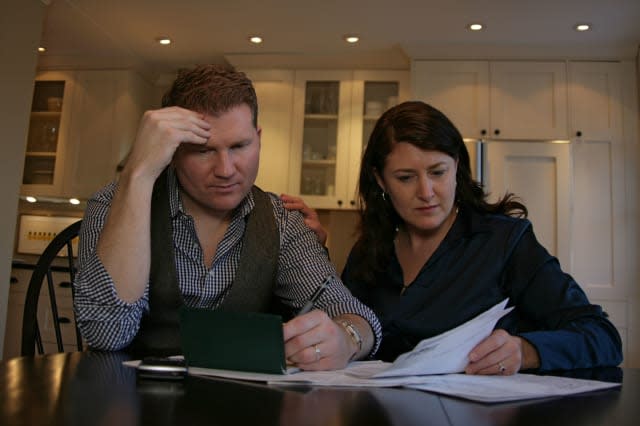Has your state pension been slashed? What can you do?

The new flat rate state pension is not flat at all. While eventually most people will get a roughly similar amount, in the short-term, more than half of all those who retire are heading for a nasty surprise when they request their state pension estimate. Their projected annual pension could be hundreds of pounds lower than they were expecting.
If you have received a horrifying estimate, it's important to understand why it is so low and what you can do about it.
If you open your state pension estimate, and your weekly payment is less than £155.65 (or £8,094 a year), then there are a couple of possible reasons.
For some people they simply haven't been paying into their state pension for long enough. The new scheme requires 35 years of National Insurance contributions (or credits for those who were not working for certain specific reasons), or you will only receive a proportion of the new pension. Anyone with fewer than ten years isn't entitled to anything at all.
However, the vast majority of people with lower estimates have worked for most of their career. Their lower estimate is due to the fact that they were 'contracted out' for at least a period of their working lives.
Contracted out
This essentially meant that you chose not to pay into the state second pension, or S2P, which is the state pension top up. Instead you built up pension rights elsewhere.
In some cases this will have been arranged by your employer, who offered a good enough pension scheme that the state allowed the entire scheme 'contract out' of state pension top ups. It means you have been paying a lower level of national insurance contributions for the entire time you were in the scheme. The fact you have paid less in (and built up a pension elsewhere) means that the government has decided to reflect that in smaller pension payments.
In other situations, people chose to do this themselves. In these cases, they continued to pay national insurance contributions at the full rate, but instead of it all going towards the state pension system, the top up but went into a private pension. The government wants to reflect the fact that you will have built up a sum in this private pension, and so will pay less each week through the state pension.
The experts say that in the vast majority of cases, those who contracted out into a private scheme will be worse off.
The system of 'contracting out' started in 1978 for workplace schemes and 1998 for private pension. Most private pension members were contacted back in by 2012, and final salary schemes were back in by April this year.
If you were contracted out for the whole of your working life and retired this year, you could expect £119.30 a week in state pension - well below the £155.65 you were probably expecting.
The solution
If you have a few years to retirement, there's an opportunity to make this up by staying in work, and continuing to pay National Insurance contributions (or receive credits). You can build up full contributions for every year you work until state pension age, so even if you were contracted out for years, you may still be able to make up for the lost time if you can work for a total of 35 years while contracted in. Every year helps too, so each year you are contracted in, you add £4.42 a week to your state pension.
If you are about to reach state pension age, you don't have this option. You can pay class 3 voluntary contributions - which is a lump sum payment to make up any gaps. However, you can usually only fill in any gaps for the past six years.
If you are already retired (before April 6 this year), and received a lower income because of a period spent contracted out, then there's a special kind of national insurance available until April 5 next year. You can make national insurance class 3A voluntary contributions. You can get between £1 and £25 extra every week, and how much each £1 costs depends on your age.
Someone who is 65 would pay £890 for every extra £1 of pension per week, so to get the full £25 would cost £22,250. The older you are, the cheaper it is to buy the extra payments, so someone who is 70 has to pay £779 for each extra £1 of pension.
The first step in every case is to get hold of an estimate, and find out what state pension you can expect. That way you know whether you need to take steps to boost your pension - before it's too late.




